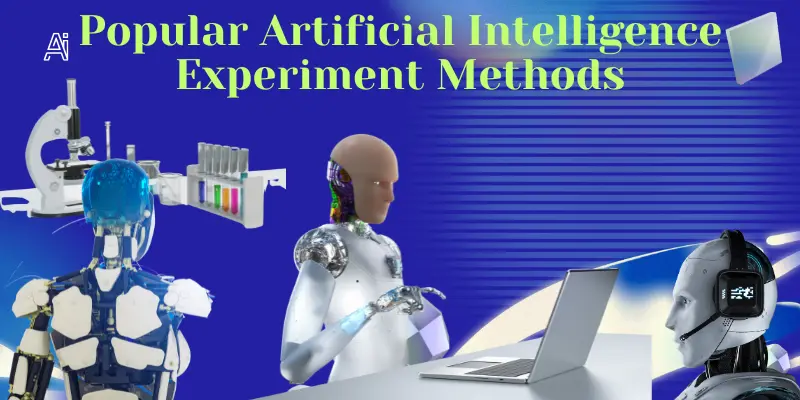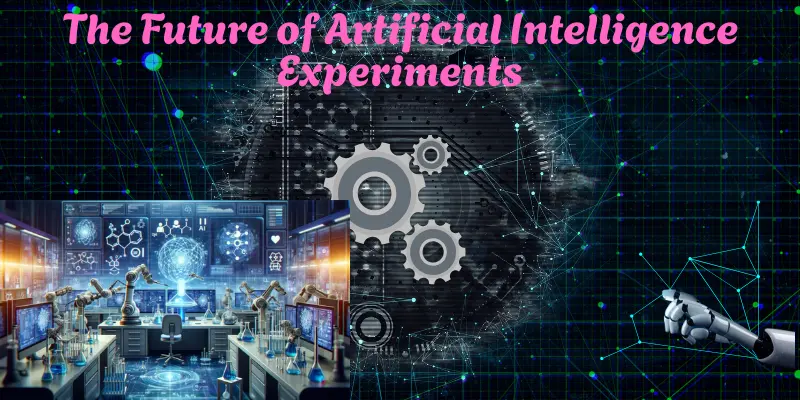Artificial Intelligence Experiments – Shaping the Future
Published: 19/04/2025
Artificial Intelligence (AI) has become an essential part of modern technology, transforming various industries and everyday life. Through Artificial Intelligence Experiments, scientists and researchers are pushing the boundaries of what machines can do, from learning on their own to solving complex problems. These experiments play a crucial role in enhancing the capabilities of AI, allowing it to perform tasks more efficiently and intelligently. As AI continues to evolve, the experiments conducted today will shape the technology of tomorrow, impacting everything from healthcare to transportation and beyond.
Table of Contents
Purpose of AI Experiments
The purpose of AI experiments is to improve the way machines think and learn. These experiments help develop smarter systems that can understand data, make decisions, and perform tasks with minimal human input.

By testing different AI models, researchers can identify the most effective ways for machines to solve problems, whether it’s diagnosing diseases, driving cars, or predicting weather patterns. Ultimately, AI experiments aim to create tools that are not only efficient but also capable of adapting to new challenges and environments, making technology more reliable and useful for everyone.
Types of AI Experiments
There are several types of AI experiments that help machines learn and improve. Here are some types of ai experiments.
- Supervised Learning
- Unsupervised Learning
- Reinforcement Learning
- Supervised Learning
- In this experiment, machines are trained using labeled data, where the correct answer is already known. This helps them learn patterns and make predictions.
- Unsupervised Learning
- Here, machines learn from data without labels. They identify patterns and group data on their own, which is useful for tasks like clustering and anomaly detection.
- Reinforcement Learning
- This type of experiment involves machines learning by trial and error. They take actions in an environment and are rewarded or punished based on their decisions, helping them improve over time.
Popular Artificial Intelligence Experiment Methods
Several popular AI experiment methods are widely used to improve machine learning and problem-solving. Here are some methods.
- Neural Networks
- Genetic Algorithms
- Deep Learning

- Neural Networks
- This method mimics the human brain, using layers of interconnected nodes to process and learn from data. It is particularly effective in tasks like image and speech recognition.
- Genetic Algorithms
- Inspired by natural selection, these algorithms evolve over time to find the best solution to a problem. They work by generating a population of possible solutions and selecting the fittest ones for the next generation.
- Deep Learning
- A subset of neural networks, deep learning uses large amounts of data and powerful computing to train models capable of making complex decisions. It is widely used in applications like self-driving cars and facial recognition.
Key Challenges in AI Experiments
AI experiments face several key challenges that can impact their effectiveness:
- Data Quality and Availability
- One of the biggest challenges is having access to clean, high-quality data. Without good data, AI models may make inaccurate predictions or learn the wrong patterns.
- Computing Power
- AI experiments require significant computing resources, especially for complex tasks like deep learning. Without enough processing power, these experiments can be slow or even impossible to conduct.
- Bias and Ethical Issues
- AI models can unintentionally learn biases from the data they are trained on. This can lead to unfair outcomes, such as discrimination in hiring or lending decisions. Ensuring fairness and addressing ethical concerns is a major challenge.
Famous AI Experiments and Their Impact
Several famous AI experiments have had a significant impact on various industries:
- AlphaGo
- Developed by DeepMind, AlphaGo was the first AI to defeat a human world champion in the game of Go. This experiment showed the power of deep learning and reinforced the potential of AI in problem-solving and strategy.
- IBM Watson
- Watson gained fame after winning the quiz show Jeopardy! against human champions. It demonstrated the ability of AI to process and analyze vast amounts of data to make decisions and provide answers.
- Self-Driving Cars
- AI-powered self-driving car experiments, led by companies like Tesla and Waymo, are revolutionizing the transportation industry. These experiments aim to create safer and more efficient driving experiences by reducing human error.
The Future of Artificial Intelligence Experiments
The future of AI experiments holds exciting possibilities, with several key developments on the horizon:

- Advanced Learning Models
- AI experiments will focus on creating more advanced learning models that can better understand complex data and make faster, more accurate decisions.
- AI in Healthcare
- AI experiments will increasingly be used in medical fields, helping to diagnose diseases earlier, personalize treatments, and even assist in drug discovery.
- Ethical AI
- Future experiments will aim to make AI systems more transparent, fair, and accountable, addressing current concerns about bias and ethical decision-making.
- AI in Automation
- AI experiments will push the boundaries of automation, enabling robots and machines to perform tasks that were once thought to be too complex or dangerous for them to handle.
- Human-AI Collaboration
- The future will see AI working alongside humans in more creative and productive ways, enhancing human abilities and efficiency in various fields.
Advantages and Disadvantages of Artificial Intelligence Experiments
AI experiments offer numerous benefits like increased efficiency and automation, but they also come with challenges such as high costs and potential job displacement.
Benefits of Artificial Intelligence Experiments
AI experiments offer numerous advantages, from improving efficiency and decision-making to automating repetitive tasks, ultimately enhancing various industries and everyday life.
| pros of AI Experiments |
|---|
|
Drawbacks of Artificial Intelligence Experiments
While AI experiments offer numerous benefits, they also come with certain challenges and drawbacks that can affect their effectiveness and impact on society.
| Cons of AI Experiments |
|---|
|
Common FAQs about Artificial Intelligence Experiments
People often ask important questions about how AI experiments work, what they do, and how they impact daily life and technology.
AI plays a crucial role by analyzing large datasets and identifying patterns that humans might miss, leading to more accurate and efficient experiments.
While AI can automate many tasks, it is designed to assist humans, not replace them. AI improves efficiency, but human creativity and decision-making remain essential.
AI experiments have a significant impact on industries like healthcare, finance, transportation, and entertainment, enhancing productivity and innovation in these fields.
AI experiments are highly accurate, but their success depends on the quality of data and the algorithms used. Imperfect data or poorly designed models can lead to mistakes.
AI experiments raise ethical questions regarding bias, privacy, and transparency. It’s crucial to ensure AI systems are fair and accountable to avoid harmful consequences.
AI experiments are paving the way for groundbreaking advancements in technology, from self-driving cars to personalized medicine, shaping a smarter, more efficient future.
Conclusion
AI experiments are shaping the way technology grows, helping machines think, learn, and solve real-world problems. These experiments continue to unlock new possibilities in many fields, from healthcare to automation. As progress moves forward, responsible and well-planned AI testing will remain key to building smarter, safer, and more useful systems for the future.

- Be Respectful
- Stay Relevant
- Stay Positive
- True Feedback
- Encourage Discussion
- Avoid Spamming
- No Fake News
- Don't Copy-Paste
- No Personal Attacks

- Be Respectful
- Stay Relevant
- Stay Positive
- True Feedback
- Encourage Discussion
- Avoid Spamming
- No Fake News
- Don't Copy-Paste
- No Personal Attacks





